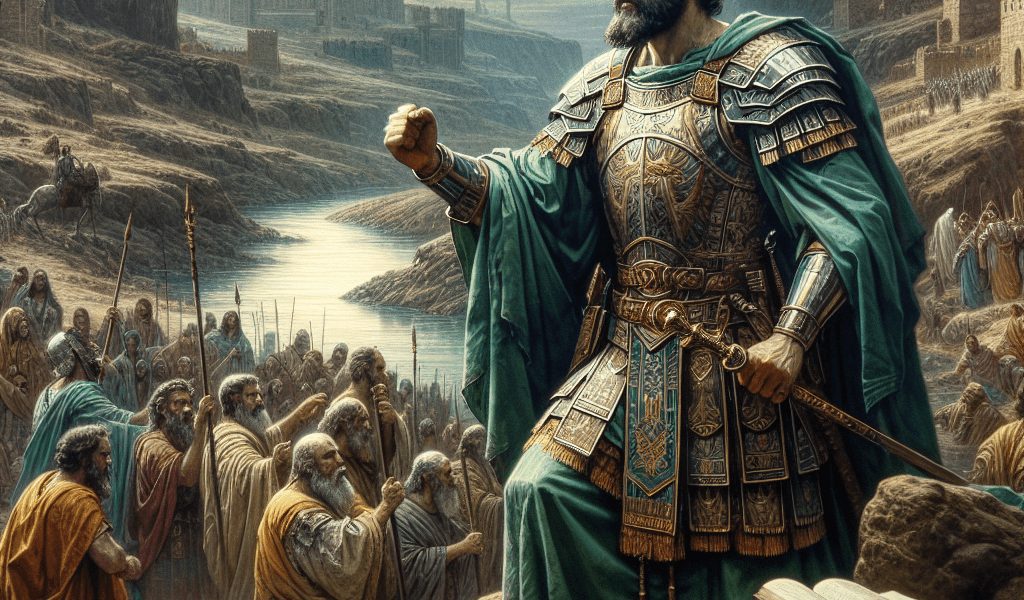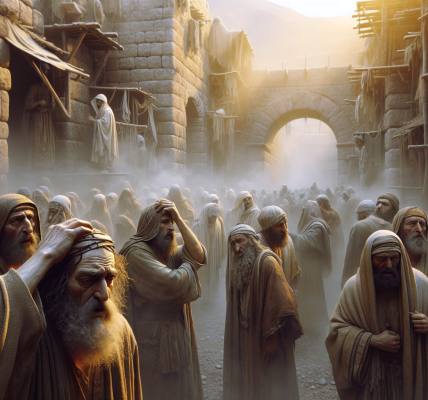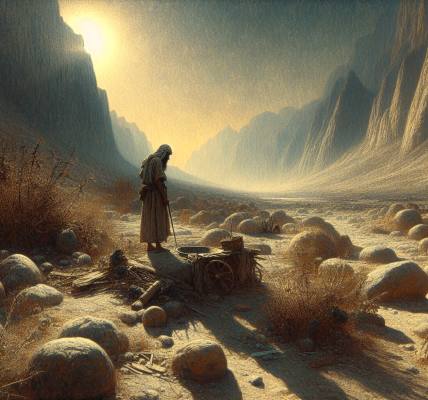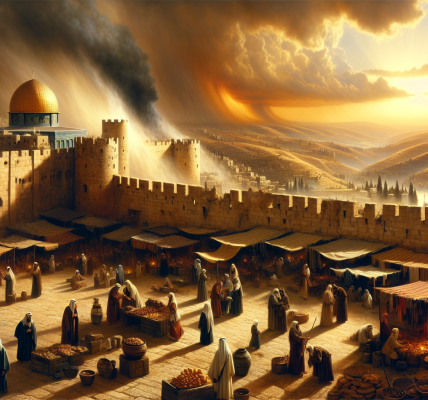In the year 15 of Tiberius Caesar’s reign, while Pontius Pilate was the governor of Judaea and Herod ruled Galilee, the word of God found its way to John, the son of Zacharias, alone in the wilderness. Several high-ranking officials held power during this time, with the likes of Annas and Caiaphas holding the sacred office of high priesthood.
John emerged from the wilderness and journeyed across the terrains that encircle the Jordan, preaching the baptism of repentance to cleanse souls of their sins, thereby bridging the chasm that existed between God and his people. His teachings echoed the words of Isaiah from the book of the refined prophet. He called upon the inhabitants of the land to prepare the way for the Lord, making his paths straight, for the divine arrival was imminent.
His prophetic words revealed that every valley will be filled, and every high mountain and hill will be lowered. The twisted will be made straight, the rugged smooth, thereby facilitating spiritual transformation.
His prophecies extended to the multitudes who thronged the River Jordan to receive baptism. He called them out, stating, “Ye offspring of vipers, who warned you to flee from the impending wrath?” He prompted them to bear fruits worthy of repentance, challenging their misplaced reliance on their lineage tracing back to Abraham. John emphasized that God, in his might, could indeed raise children for Abraham from mere stones.
John warned that judgment was near, depicted by the imagery of an axe resting at the root of the trees. Every tree that did not produce good fruit, he said, would be chopped down and thrown into the fire.
This sparked curiosity and concern among the multitudes, publicans, and even soldiers. They asked him for guidance on preserving their lives in the face of imminent judgment. John advised those who had excess clothes and food to share with those without. He warned the tax collectors and soldiers to exercise fairness, non-violence, and contentment in performing their duties, and to not misuse their power because of greed or fear.
Many pondered if John was the Christ, but he debunked those assumptions clearly stating he was not the chosen one. He professed, “I indeed baptize you with water; but there comes one mightier than I, the latchet of whose shoes I am not worthy to unloose: he shall baptize you with the Holy Spirit and in fire.”
Although His teachings brought solace, not all welcomed them. Herod handcuffed John due to John’s outspoken criticism of his illicit relationship with his brother’s wife, marking another dark event under Herod’s rule.
Still, John’s prophecies reached their crescendo when Jesus himself was baptized. As He prayed, the heavens opened, and the Holy Spirit descended upon Him in the form a dove. A divine voice echoed, declaring, “Thou art my beloved Son; in thee, I am well pleased.”
This marked the beginning of Jesus’s ministry; He was approximately thirty years old. Biblically recognized as the son of Joseph and in a more extended lineage tracing all the way back to Adam, and finally, God himself. His lineage serving as a bridge across time, linking the divine with the human, re-establishing the bond between heaven and earth. His arrival stirred hope of salvation and peace among the multitudes.




